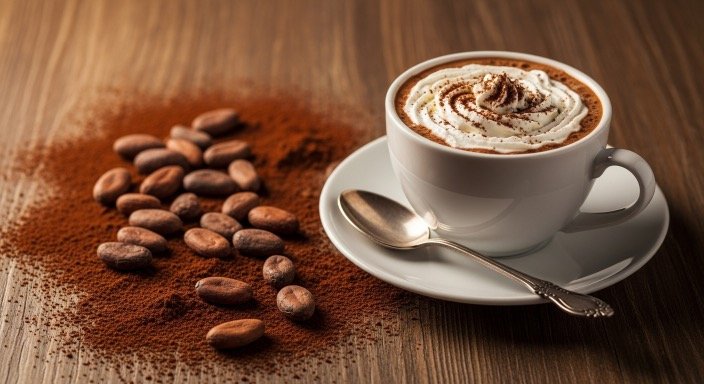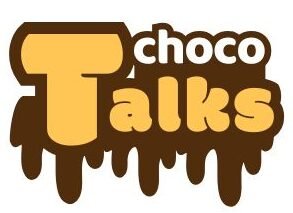Does hot chocolate have caffeine
When you curl up with a warm mug of hot chocolate, you’re probably thinking about comfort — not caffeine. It’s the drink we reach for when coffee feels too strong, when we need something sweet and soothing. But is it really caffeine-free?
Surprisingly, that comforting cup might have more in common with your morning espresso than you think. While it’s nowhere near as stimulating as coffee, hot chocolate does contain caffeine, thanks to the natural compounds in cocoa.
So how much caffeine does it actually have, how does it compare to other drinks, and should you be concerned? Let’s break down the facts — and separate myth from mocha.
Where the Caffeine in Hot Chocolate Comes From
The caffeine in hot chocolate doesn’t come from coffee beans, of course — it’s from cocoa beans, the same source as chocolate bars. Cocoa naturally contains caffeine and theobromine, two compounds that belong to the same chemical family known as methylxanthines.
According to Science Direct, caffeine and theobromine both act as mild stimulants — increasing alertness while also improving mood and focus.
That’s part of what makes chocolate so comforting: it boosts serotonin while giving a subtle energy lift.
You can learn more about how chocolate influences mood and brain function in Is Dark Chocolate Really Healthy?.
How Much Caffeine Is in Hot Chocolate?
Let’s look at the numbers:
| Drink Type | Typical Serving (8 oz) | Caffeine Content |
| Hot Chocolate (from cocoa powder) | 5–20 mg | |
| Instant Hot Cocoa Mix | 2–7 mg | |
| Coffee | 90–120 mg | |
| Black Tea | 45–60 mg | |
| Green Tea | 25–40 mg | |
| Cola | 30–40 mg |
So, while your cozy mug of hot chocolate isn’t caffeine-free, it has a fraction of the caffeine found in a standard cup of coffee.
A Lind t’s study confirmed that the caffeine content depends on how much natural cocoa is used — dark, rich cocoa powder yields more caffeine, while milk-based mixes contain less.
This difference also affects flavor and antioxidants — learn more in Dark vs. Milk Chocolate: The Surprising Health Differences You Need to Know.
Caffeine in Hot Chocolate vs. Other Popular Drinks
If you’re wondering how your cup of cocoa stacks up, here’s a quick caffeine comparison chart based on an 8-ounce serving:
| Beverage | Average Caffeine (mg) | Equivalent Energy Impact |
| Hot Chocolate (homemade with cocoa) | 5–20 mg | Mild lift, calming focus |
| Instant Hot Cocoa Mix | 2–7 mg | Barely noticeable |
| Coffee (brewed) | 95–120 mg | Strong alertness, faster energy spike |
| Espresso (1 oz shot) | 65–70 mg | Concentrated energy boost |
| Black Tea | 45–60 mg | Moderate focus, gentle alertness |
| Green Tea | 25–40 mg | Mild energy, sustained clarity |
| Matcha Latte | 55–75 mg | Balanced caffeine + antioxidants |
| Cola Soda | 30–40 mg | Quick spike, short duration |
| Energy Drink (8 oz) | 80–100 mg | Intense, short-lived stimulation |
Does Hot Chocolate Have Enough Caffeine to Affect You?
Does hot chocolate have caffeine

Does hot chocolate have caffeine
For most people, the answer is no. The caffeine level in hot chocolate is so low that it rarely causes jitteriness or sleep issues.
However, because everyone metabolizes caffeine differently, it can still make a mild difference — especially for children or those sensitive to stimulants.
According to Sleep Foundation’s research on caffeine and sleep, even small amounts of caffeine consumed close to bedtime can delay sleep onset for sensitive individuals.
That’s why nutritionists often recommend avoiding any cocoa-based drinks within two hours of bedtime if you’re caffeine-sensitive.
For a cozy, bedtime-safe version, try Sip the Spirit: How to Make the Perfect Christmas Cocoa — rich, flavorful, and perfectly relaxing.
Does hot chocolate have caffeine
The Role of Theobromine: Chocolate’s Gentle Stimulant
If caffeine is the headline act, theobromine is the quiet understudy that makes chocolate unique.
While theobromine also stimulates your nervous system, it does so gently — offering calm alertness without the crash that coffee often brings.
An NIH study found that theobromine increases focus and energy in low doses, while supporting cardiovascular function. It’s also a natural mood enhancer.
That’s why hot chocolate feels different from coffee — smoother, steadier, and emotionally uplifting rather than jittery.
To explore how cocoa compounds influence wellness, read Sweet Freedom: How to Reduce Sugar and Unlock Better Health.
Comparing Caffeine Levels: Cocoa vs. Chocolate
It’s not just your drink — the type of chocolate you use can dramatically change caffeine levels.
| Type of Chocolate | Caffeine (per oz) | Theobromine (per oz) |
| Dark Chocolate (70%) | 20–25 mg | 200 mg |
| Milk Chocolate | 5–10 mg | 60 mg |
| White Chocolate | 0 mg | Trace only |
| Cocoa Powder (unsweetened) | 10–15 mg | 150 mg |
An Integris Health review found that dark chocolate’s caffeine is higher because of its higher cocoa solids content — the same reason it’s packed with more antioxidants.
Learn how cocoa solids influence flavor and health in Chocolate Graham Crackers: A Simple Recipe with a Twist.
So, if you’re making hot chocolate from scratch using real dark cocoa, you’ll get more caffeine than if you’re stirring an instant mix.
Is Hot Chocolate Safe for Kids?
Does hot chocolate have caffeine

Does hot chocolate have caffeine
Generally, yes — but moderation matters.
The Children’s Health suggests that children under 12 limit caffeine to less than 2.5 mg per kilogram of body weight per day. A small cup of hot chocolate (around 5–10 mg caffeine) fits safely within that range.
Still, it’s best to keep bedtime cocoa caffeine-free by choosing “caffeine-reduced” or carob-based mixes.
For kids or sensitive adults, try cooling your cocoa and turning it into Chocolate-Covered Strawberries — a fun, family-friendly dessert alternative.
Can You Make a Caffeine-Free Hot Chocolate?
Absolutely. If you love the warmth of cocoa but want to skip caffeine altogether, here are some smart swaps:
- Carob powder: A naturally caffeine-free alternative with a chocolate-like taste.
- Caffeine-free cocoa blends: Brands like CocoaVia offer low-caffeine options.
- White chocolate drinks: Made from cocoa butter only — smooth, creamy, and stimulant-free.
A TandFOnline’s study confirms that carob’s polyphenols mimic cocoa’s antioxidant effects without the caffeine, making it an excellent alternative for sensitive individuals.
To keep your homemade blends fresh and flavorful, see How to Store Chocolate to Keep It Fresh: Tips from Experts.
The Health Perspective: Benefits Beyond Caffeine
Caffeine aside, hot chocolate can be surprisingly good for you — when made with real cocoa and minimal sugar.
Cocoa is rich in flavanols that support heart health, cognitive function, and stress reduction. A National Library of Medicine meta-analysis found that daily cocoa consumption improves blood flow and lowers inflammation markers.
That’s why many nutritionists recommend swapping sugary instant mixes for homemade versions using dark cocoa powder and milk alternatives.
For an energizing variation, check out Bone Broth Hot Chocolate: The Surprising Superfood Drink You’ll Actually Love.
When to Drink Hot Chocolate
If you’re caffeine-sensitive, timing matters.
Because hot chocolate contains both caffeine and theobromine, it can lightly stimulate your brain — perfect for:
- Afternoon slumps when coffee feels too strong.
- Before workouts for steady energy.
- As a morning alternative for non-coffee drinkers.
Just avoid drinking it right before bed if you’re easily affected by caffeine.
For bedtime-friendly comfort, read Sip the Spirit: How to Make the Perfect Christmas Cocoa.
Final Thoughts
So — does hot chocolate have caffeine? Yes, but not enough to make most people lose sleep or feel jittery. A single cup has just 5–20 mg of caffeine — a whisper compared to coffee’s 100 mg roar.
It’s a gentle comfort drink — offering warmth, relaxation, and a tiny mood lift without overstimulation.
So go ahead — enjoy that evening mug of cocoa. If you’re making it from real dark chocolate, savor every sip knowing it’s giving you not just sweetness, but antioxidants, theobromine, and a little science-backed joy.
Continue exploring chocolate science with Why Chocolate Melts in Your Hands but Not in the Box — What You Need to Know.

